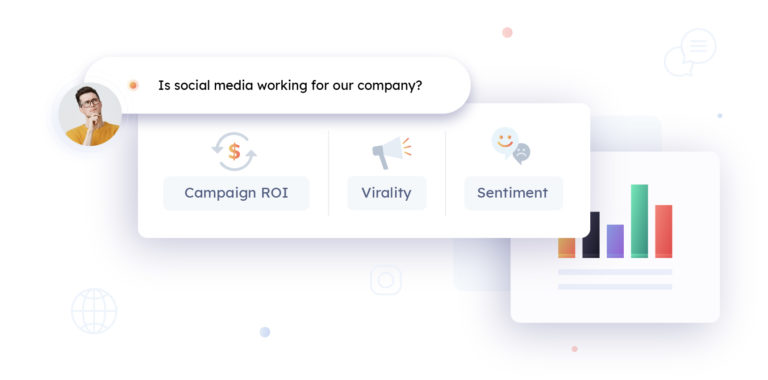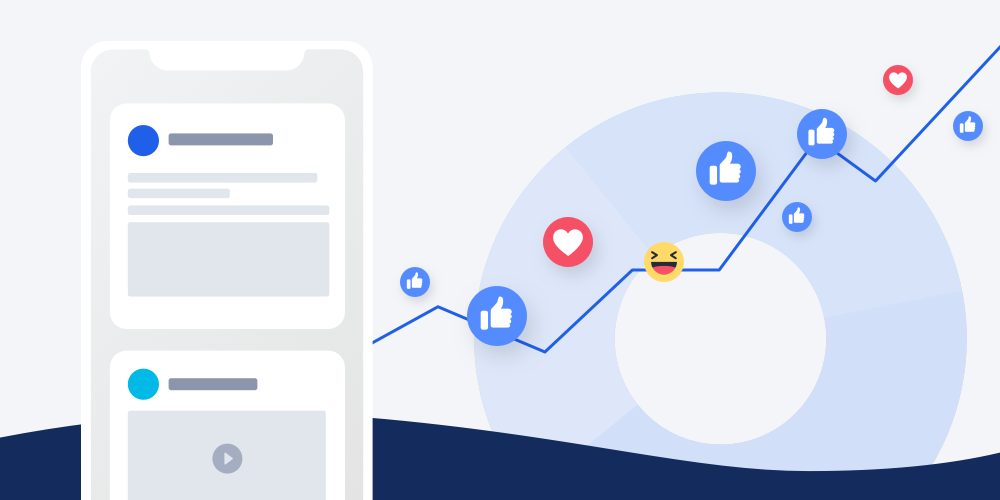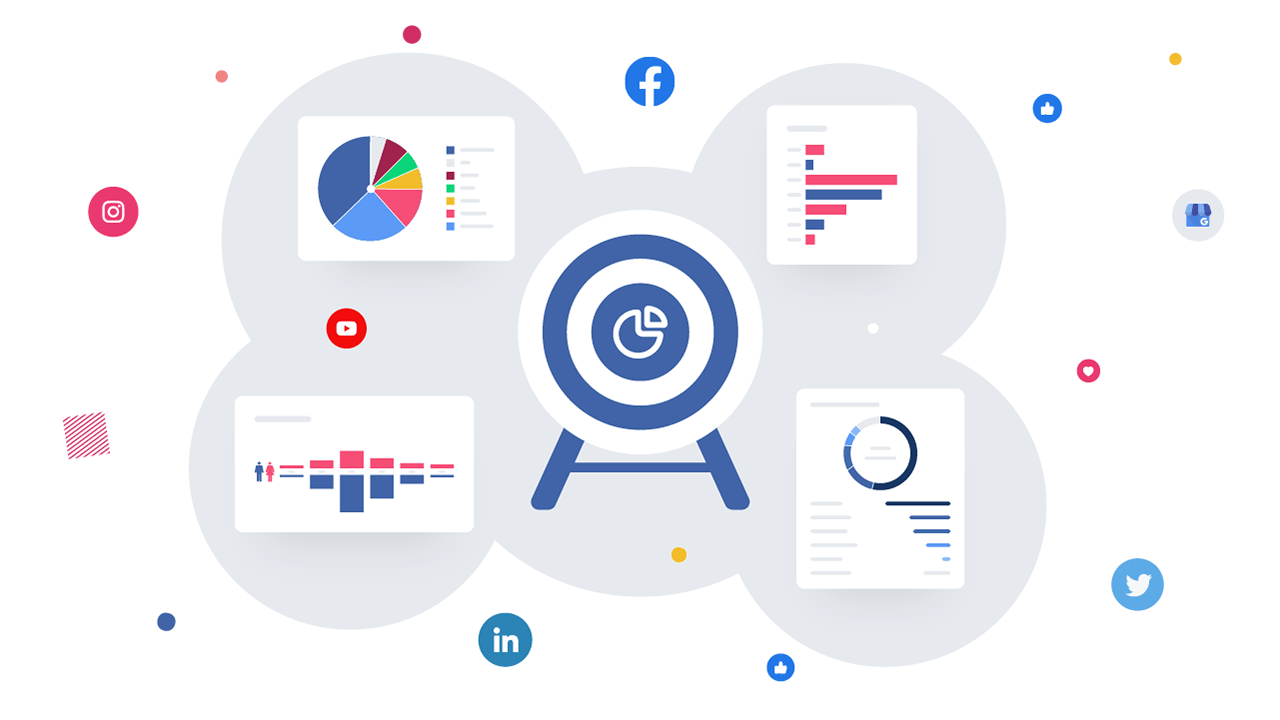In today’s digital age, social media platforms have become a central hub for communication, information sharing, and engagement. With billions of users worldwide, social media generates massive amounts of data that can provide valuable insights to individuals and businesses. This is where social media analytics comes into play. By harnessing the power of data analytics, businesses can gain a deeper understanding of their audience, track performance, and make informed decisions. In this article, we will explore the various applications of social media analytics and how they can benefit businesses in different domains.
Applications Of Social Media Analytics

1. Market Research and Customer Insights
Social media analytics allows businesses to conduct market research and gain valuable customer insights. By monitoring social media conversations, businesses can gather information about customer preferences, opinions, and needs. This data can help companies identify trends, evaluate market demand, and discover new opportunities for growth. Additionally, social media analytics can provide demographic information, enabling businesses to target specific customer segments effectively.
2. Brand Reputation Management
Maintaining a positive brand reputation is crucial for businesses. Social media analytics enables companies to monitor and manage their brand reputation effectively. By tracking mentions, comments, and sentiment analysis, businesses can quickly identify any negative mentions or potential crises. With this information, companies can take proactive measures to address issues, respond to customer feedback, and protect their brand image.
3. Campaign Tracking and Performance Measurement
Social media analytics plays a vital role in tracking and measuring the performance of marketing campaigns. Businesses can track key metrics such as engagement rates, reach, click-through rates, and conversions. This data allows companies to evaluate the effectiveness of their campaigns, identify successful strategies, and optimize future marketing efforts. By understanding which content resonates with their audience, businesses can create more impactful campaigns and drive better results.
4. Influencer Marketing
Influencer marketing has become a popular strategy for businesses to reach their target audience effectively. Social media analytics can help companies identify relevant influencers, evaluate their engagement levels, and assess their impact on brand awareness and customer engagement. By partnering with the right influencers, businesses can leverage their reach and credibility to promote their products or services.
5. Crisis Management
Social media can be a double-edged sword when it comes to crisis management. On one hand, negative comments or viral content can quickly damage a company’s reputation. On the other hand, social media analytics can help businesses detect and address crises promptly. By monitoring social media conversations, companies can identify potential issues, evaluate the sentiment, and take appropriate actions to mitigate the impact of a crisis.
6. Product Development and Innovation
Social media analytics provides valuable insights into customer preferences, needs, and feedback. Businesses can gather data on customer opinions, suggestions, and complaints regarding existing products or services. This information can be used to improve existing offerings or develop new products that align with customer expectations. By leveraging social media analytics, companies can enhance their product development and innovation processes.
7. Customer Service and Support
Social media has become a popular channel for customers to seek support and voice their concerns. Social media analytics enables businesses to monitor and respond to customer inquiries, complaints, and feedback in real time. By providing timely and personalized responses, companies can enhance customer satisfaction and loyalty.
8. Competitive Analysis
Social media analytics can also be used for competitive analysis. By monitoring competitors’ social media activities, businesses can gain insights into their strategies, campaigns, and customer engagement. This information allows companies to identify areas of improvement, uncover new opportunities, and stay ahead of the competition.
Challenges in Applications of Social Media Analytics

While social media analytics offers numerous benefits, there are also challenges that businesses need to address:
1. Data Volume and Variety
The sheer volume and variety of data generated on social media platforms can be overwhelming. Analyzing and extracting meaningful insights from this vast amount of data requires advanced tools and techniques.
2. Data Privacy and Ethics
Privacy concerns and ethical considerations surrounding social media data have gained prominence in recent years. Businesses must ensure that they handle user data responsibly and comply with privacy regulations.
3. Real-time Monitoring
Social media is fast-paced, and trends can change rapidly. Real-time monitoring is crucial to stay updated and respond promptly to emerging situations.
4. Sentiment Analysis and Emotion Detection
Understanding the sentiment and emotions expressed on social media platforms is essential for accurate analysis. However, sentiment analysis and emotion detection algorithms may face challenges in accurately interpreting nuanced language and context.
5. Data Accuracy and Reliability
Not all data on social media platforms may be accurate or reliable. Businesses need to implement measures to validate and verify the data they analyze to ensure the accuracy of their insights.
Best Practices for Applications of Social Media Analytics

To maximize the benefits of social media analytics, businesses should consider the following best practices:
1. Define Clear Goals and Objectives
Clearly define your goals and objectives before diving into social media analytics. Having a clear purpose will guide your analysis and help you focus on the most relevant metrics.
2. Select the Right Social Media Analytics Tools
Choose the appropriate social media analytics tools that align with your objectives. Different tools offer various features and capabilities, so it’s important to select the ones that best suit your needs.
3. Monitor Relevant Metrics and KPIs
Identify the key metrics and KPIs that align with your goals. Regularly monitor these metrics to track your performance, identify trends, and make data-driven decisions.
4. Understand Context and User Behavior
Consider the context in which social media conversations occur. Understand user behavior and the factors that influence their engagement and sentiment.
5. Continuously Improve and Adapt
Social media analytics is an ongoing process. Continuously evaluate and refine your strategies based on the insights you gather. Adapt to changes in user behavior, platform algorithms, and market trends.
Conclusion
Applications of social media analytics have emerged as a powerful tool for businesses to gain insights, make informed decisions, and drive growth. By leveraging social media data, companies can enhance their market research, brand reputation management, campaign tracking, and more. However, it’s crucial to address the challenges and follow best practices to maximize the benefits of social media analytics.
To unlock the full potential of social media analytics for your business, consider partnering with a reliable analytics provider like Aim Technologies. Request a demo today and see how Aim Technologies can help you harness the power of social media data to drive meaningful results.
FAQs
1. What is the role of social media analytics in digital marketing?
- Social media analytics helps digital marketers understand audience preferences, track campaign performance, and make data-driven decisions. It enables marketers to optimize their strategies, targets specific customer segments, and improve overall campaign effectiveness.
2. How can social media analytics help improve customer engagement?
- By analyzing social media data, businesses can gain insights into customer preferences, feedback, and sentiment. This information allows companies to tailor their content and engagement strategies to resonate with their audience, resulting in improved customer engagement.
3. Are there any limitations to social media analytics?
- Social media analytics has limitations, including data privacy concerns, challenges in accurately interpreting sentiment and emotions, and the need for continuous monitoring and adaptation to stay relevant in a dynamic social media landscape.
4. What are some popular social media analytics tools?
- Popular social media analytics tools include Hootsuite, Sprout Social, Buffer, Google Analytics, and Brandwatch. These tools offer various features to track and analyze social media data.
5. How can businesses leverage social media analytics for growth?
- By leveraging social media analytics, businesses can gain valuable insights into their audience, competitors, and market trends. These insights can inform strategic decision-making, improve customer engagement, drive product development, and ultimately contribute to business growth.


